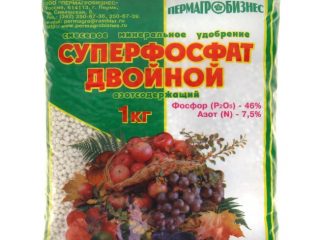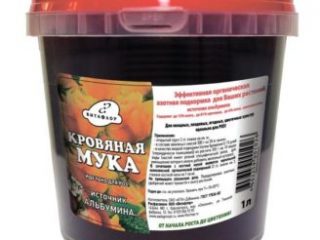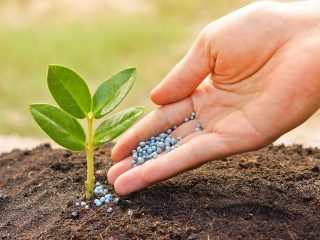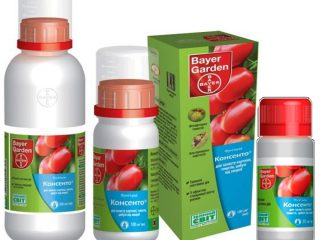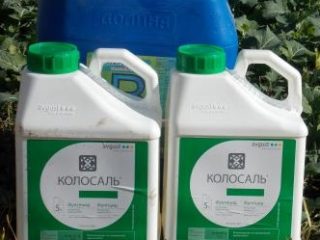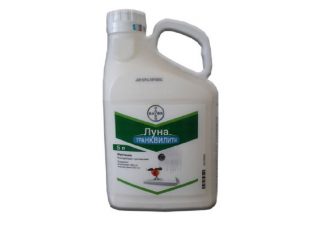Content
Rose is the queen of flowers, so don't be surprised by her capriciousness. The plant is demanding when it comes to fertilizing, but many people are concerned about the question of what fertilizer to use. Manure for roses can be different - both in quality (fresh, rotted) and in essence (sheep, cow, horse). So it is important to understand what types of additives to use and how to apply them.
Is it possible to feed roses with manure?
Since ancient times, gardeners have fertilized their plots with manure. Fertilizing not only improves the composition of the soil, but also provides organic matter, which, after overheating, becomes a kind of dessert for plant roots.

When applying fertilizer, it is important to know how a particular variety relates to this: some varieties can be fed regularly, others cannot.
Mullein, horse manure and chicken manure are used for roses in spring, summer and autumn. Fertilizing has a complex effect on crop development. The result of application is:
- active growth of the root system;
- the appearance of a large number of buds;
- increased flower size;
- dense arrangement of shoots;
- strong immunity;
- improved cold resistance.
Types of manure
There are several types of manure. Since its producer is livestock, they distinguish between cow and horse.
Cow dung as fertilizer for roses
Mullein is a complex supplement that contains a huge number of useful elements. However, such manure can be different. Its quality depends on what vegetation the animal ate, where it slept, how old the cow is, and whether it is sick with something. As scientists say, even the social status of the animal in relation to other members is influenced.

Mullein usually contains part of the litter, this can be sawdust, dry vegetation or peat
Such additives not only make manure richer in composition, but also preserve it. It is best to place manure with peat under the rose - it contains a lot of nitrogenous elements. Dry grass contains chlorine, and sawdust contains little of both.
Cow dung also has its disadvantages. Some elements are difficult for roses to absorb and therefore become inaccessible to them. This applies to fresh mullein, in which the nitrogen has not yet broken down into its constituent parts. Over time, it will begin to react with ammonia and evaporate into the atmosphere.
However, the gardener can improve the quality of the fertilizer. For this manure:
- diluted with minerals;
- compost;
- brought to a state of rotting;
- They are brought into the ground in the fall so that it can be better absorbed with the arrival of spring.
If cow manure is not available, another feeding option may be considered.
Is it possible to feed roses with horse manure?
If we compare the numbers of cows and horses, the latter are clearly inferior. Man exterminated horses, as technological progress made it possible to use other means of transportation. In this regard, it has become difficult to obtain horse manure, but if a gardener has such an opportunity, why not take advantage of it.

Many villages still use horses for plowing.
The villages keep at least one horse for work. You can try to negotiate with the owner. This manure is very valuable for roses and after feeding the plants will thank the owner in their own way.
You can fertilize roses with horse manure in autumn, spring and summer. The fertilizer has the following properties:
- Improves soil structure. The sand becomes more dense, and the clay, on the contrary, becomes loose.
- When heated, it releases carbon dioxide into the environment.
- Strengthens the rose's immune system, protecting it from insects and diseases.
It is unsafe to use fresh fertilizer as it burns the roots. Therefore, manure is added to the soil in the fall, and roses are planted in the spring. If autumn has passed, you can prepare an infusion. To do this, 1 bucket of fertilizer is diluted with 10 liters of hot water. They wait for a month. Before use, 1 liter of infusion is combined with a bucket of plain water. The color should resemble faint coffee grounds. Semi-rotted fertilizer is used to mulch roses, as it accumulates heat.
Which manure is better
The value of cow and horse fertilizer is different.The first contains less nitrogen, potassium and phosphorus. Therefore, horse manure is much richer. Another advantage of this feeding is the composition of phosphorus - it is half decomposed into light minerals, which allows roses to quickly absorb the necessary elements.
In what form to use
Horse and cow manure are the two most valuable organic fertilizers. But the gardener also needs to know in what form to use them.
Fresh
The fresh supplement contains many undecomposed macronutrients that dung flies and other insects can feed on. As for roses, their root system is not able to digest these substances.

Fresh fertilizer is not used.
Half-rotted
In this form, the substance is less aggressive, it contains fewer “heavy” organic elements, which increases the rate of absorption.

Feeding roses with half-rotted manure is carried out in autumn or spring.
Rotten
Rotted fertilizer is quite suitable for saturating roses. It also has another practical value - gardeners use manure for mulching.

Rotted fertilizer is looser in composition
Humus
When the additive turns into humus, it becomes incredibly beneficial for rose roots. Humus is not capable of causing damage to the culture.

You can prepare an infusion based on humus for better absorption or add it as is.
Deadlines for depositing
In order for the rose to demonstrate lush flowering, additives are added at a certain period:
- The first time roses are fed is in the spring - after a sanitary haircut. For 1 bush, 100 g of chicken manure and 2.5 kg of rotted fertilizer (you can use mullein or horse manure) are enough.
- After two weeks, the roses are fertilized a second time. Here it is better to prepare an infusion - 4 liters of mullein or dung is enough for the plant.
- The same additive is used a third time when the roses begin to form buds.
- If the rose blooms twice, after the first flowering, add 200-300 g of rotted fertilizer.
- After the final flowering, the crop will prepare for sleep. At this stage, 75 g of wood ash is used.
How to fertilize roses with manure
Fresh additives should not be used, as they pose a danger to roses and carry seeds from other plants. Fresh feces often contain parasites, the presence of which is also very undesirable.
Planting soil for roses should be prepared in advance so that the organic matter decomposes thoroughly. For 1 sq. m of land is distributed into 1 bucket of fertilizer. The soil is dug up (at least 6 cm), and after a week the procedure is repeated.
Some people use humus as a mulching material. It is applied in the spring, at the beginning of the hot season and with the arrival of autumn.

It is important that the leaves do not touch the fertilizing - a burn may occur; to be safe, you should step back from the stems at least 10 cm
To prepare liquid fertilizer for roses, you will need a few grams of wood ash, 20 liters of plain water and 1 bucket of mullein. The nutrient mass is infused for 20 days, then each liter is diluted in a bucket of water. 1 liter is enough for one plant.
Common mistakes
Beginner gardeners make some mistakes when applying, which is why the roses then suffer. To prevent such situations from arising, it is useful to listen to the advice of experts:
- By adding minerals to the fertilizer, the owner makes the work of the roots easier, and the plant can develop faster.
- Moldy manure is not suitable for feeding. Moreover, it does not warm the soil during decomposition.
- After applying the liquid mixture, it is necessary to loosen the area. Thanks to this, the additive penetrates to the roots faster.
- You can cover roses with manure in different ways; on light substrates the depth of placement is 30 cm, on heavy substrates 20 cm is enough.
- The application of fertilizers must be correlated with the period of development - bud formation, budding, end of flowering.
- To feed roses, you should use rotted mullein or ready-made humus.
When mulching, you need to remember that the plant should not touch the material with its shoots. In hot weather, when the intensity of evaporation increases, the leaves and stems of the crop quickly become overgrown with burns.
Conclusion
It is necessary to use manure for roses annually. Thanks to this, the plantings’ immunity increases and they become more resistant to aggressive factors. At the same time, it is important to know when and what kind of fertilizing to apply. This knowledge will allow roses to bloom faster and more luxuriantly, to please the gardener and not to get sick.
